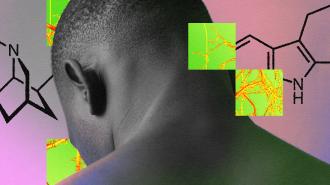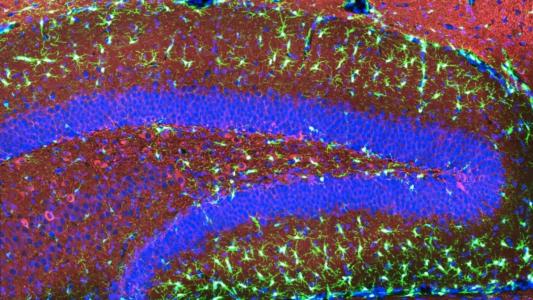A single dose of the psychoactive drug ibogaine appears to reduce the symptoms of a traumatic brain injury (TBI) in military vets, according to a small Stanford University study, though more research is needed to confirm the promising results.
The challenge: A traumatic brain injury (TBI) occurs when you hit or jerk your head hard enough that your brain moves violently inside your skull. This may cause brain damage that leads to problems with cognition, emotion, or movement.
Such injuries are unfortunately common among US military veterans.
Between 2000 and 2022, nearly 460,000 service members sustained a TBI during training or combat, according to the DoD, and those injuries put them at higher risk than other vets of developing depression, PTSD, anxiety, suicidality, or a substance abuse disorder.
“They were all willing to try most anything that they thought might help them get their lives back.”
Nolan Williams
The idea: While standard treatments, such as antidepressants and anti-anxiety meds, can help some vets overcome the symptoms of a TBI, they don’t work for everyone, leading some to try more radical options, including ibogaine, a psychoactive substance found in certain plants.
“There were a handful of veterans who had gone to this clinic in Mexico and were reporting anecdotally that they had great improvements in all kinds of areas of their lives after taking ibogaine,” said Nolan Williams, an associate professor of psychiatry and behavioral sciences at Stanford.
The study: Williams and his colleagues have now published a study detailing what happened after ibogaine treatment on 30 special forces vets with a history of TBI, all of whom had independently scheduled appointments at the Mexican ibogaine clinic, which is run by Ambio Life Sciences.
“These men were incredibly intelligent, high-performing individuals who experienced life-altering functional disability from TBI during their time in combat,” said Williams. “They were all willing to try most anything that they thought might help them get their lives back.”
Before and after traveling to Mexico for the ibogaine treatment — a single oral dose of the drug combined with magnesium to help prevent potential heart complications — the vets completed questionnaires and underwent assessments to measure their levels of PTSD, anxiety, depression, and disability.
“No other drug has ever been able to alleviate the functional and neuropsychiatric symptoms of traumatic brain injury.”
Nolan Williams
After the treatment, they had an average disability score of 5.1 (indicating no disability) compared to 30.2 (mild to moderate disability) prior to it. The vets’ self-reported symptoms of PTSD, depression, and anxiety also fell by an average of 88%, 87%, and 81%, respectively.
These effects persisted for one month after the ibogaine treatment, the period of time covered by the new paper, but the researchers plan to follow up with the vets for one year.
“No other drug has ever been able to alleviate the functional and neuropsychiatric symptoms of traumatic brain injury,” said Williams. “The results are dramatic, and we intend to study this compound further.”
Looking ahead: While the study suggests that ibogaine may be able to help vets overcome the symptoms of a TBI, it is far from conclusive.
The study was small and lacked a control group, and because all of the participants had already actively sought out the ibogaine treatment, some of them must have expected it would help, and that could have influenced their responses.
To truly determine the drug’s potential, we need larger, placebo-controlled trials, and given the fact that ibogaine is a schedule 1 drug in the US, securing approval for them here may be tough. Still, the Stanford team is eager to dig deeper into ibogaine as a treatment for TBI and beyond.
“I think this may emerge as a broader neuro-rehab drug,” said Williams. “I think it targets a whole host of different brain areas and can help us better understand how to treat other forms of PTSD, anxiety, and depression that aren’t necessarily linked to TBI.”
We’d love to hear from you! If you have a comment about this article or if you have a tip for a future Freethink story, please email us at [email protected].






